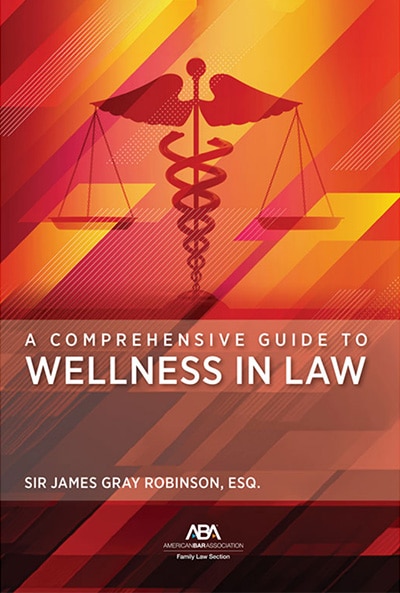Confidence is ultimately more important than talent, resiliency or even intelligence for having the life you want. Without confidence, it is almost impossible to make decisions, define your career, lead others, complete tasks well, or have a fulfilling life outside of work. What’s more, lack of confidence and self-doubt are the common denominators of burnout, stress and anxiety.

Table of contents
Self-Doubt Is a Wrecking Ball to Confidence
It may seem obvious, but the difference between successful lawyers and those who are not successful — or don’t feel successful — is confidence.
Lack of confidence, especially self-doubt, causes people to overthink, make bad decisions, lose focus and ruin their health. It lives in the past and is the bastard child of perceived mistakes and failures. Without confidence, overwhelming self-doubt robs you of satisfaction and demolishes your confidence, even when you do well.
What can you do if you are riddled with self-doubt and spiraling toward burnout?
Strategies for Building Confidence
Fortunately, a few easy strategies can help you build confidence.
1. Shift your focus inward
Most people who hire coaches or therapists are focused on acquiring a goal — a promotion, power, and money. They are focused on concrete external achievements rather than the inner qualities required to achieve them. Instead of external “work,” you need to be focused on the inner work: building confidence.
2. Turn mistakes into lessons
We learn more from challenging experiences and disappointments than we do when we get exactly what we want. This is the concept of “mistakes versus learning lessons.”
Just because you don’t get what you want or expect, that doesn’t mean you made a mistake or did something wrong. Self-doubt breeds in the spaces between not getting what you want and taking your next step. If you do your best but don’t get your desired result, consider what you learned and can do differently instead of worrying about not being perfect.
3. Focus on the big picture
When you lose sight of the big picture and instead focus on status and compare yourself to others, doubt will always creep in. If you’ve forgotten what this was for you when you started practicing law, for most attorneys, the big picture is to help people.
4. Practice self-compassion to clear the way for self-confidence.
The big picture also contains healthy amounts of self-compassion.
Are you your own best friend or your biggest critic? The negative aspects of your psyche are the ego, the inner child and the inner critic. Self-compassion does not allow these negatives to hijack your confidence, whether stemming from half-remembered critics, teachers, family members or peers who were unkind and manipulative.
Self-compassion responds to inner critics with love and kindness. It is your choice whether to obsess over inner criticism or remember that the legal profession is challenging and complex, and that few people get to be lawyers.
One of my favorite sayings is “chin up and march on.” Another is “NEXT!” Find a mantra or affirmation that cheers you up and helps you remember how good you are. If you focus on those, positive results will certainly follow.
Impostor Syndrome Is Another Enemy of Confidence
Imposter syndrome — the belief that we are flawed and incompetent and that one day, someone will discover we are frauds — is a companion to self-doubt. People with impostor syndrome tend to spend more time building castles in the air to fool everyone with external achievements, rather than simply being transparent and honest. We wear masks and disguises, hoping to convince others that we are someone more perfect than we are. Ultimately, though, we are setting ourselves up for failure and burnout.
Why? We have forgotten the big picture. Instead of focusing on how we can contribute, we focus on external gain. Confidence is an inside job. It is the result of positive virtues — wisdom, courage, humanity, justice, temperance, and transcendence. These are just as important as external achievements, if not more.
The last jury trial of my career is a perfect example. Twenty years ago, I represented plaintiffs who claimed the large corporate defendant had financially damaged them. I was the sole attorney for my clients, up against a room full of corporate defense lawyers. After a two-week trial, the jury awarded almost $1 million to my clients. While most attorneys would have been overjoyed, I could only hear my inner critic. I was so burnt out that I quit practicing law shortly after.
I wish I had known what I know now.
Building Confidence Requires Compassion, Forgiveness and Love
To find self-confidence, focus on the big picture and ignore negative self-talk. While it may feel as though you are only as good as your last win or last deal, the truth is you are only as good as you believe you are. Let that belief be the foundation of your success.

A Comprehensive Guide to Wellness in Law
The emotional health issues lawyers face are not due to weakness or failure, says author Gray Robinson, but are often due to failed training. In this new ABA book, he offers a holistic guide to lawyer wellness, using mental, emotional, and physical approaches to managing stress and anxiety.
Image © iStockPhoto.com.

Sign up for Attorney at Work’s daily practice tips newsletter here and subscribe to our podcast, Attorney at Work Today.
Illustration ©iStockPhoto.com
Subscribe to Attorney at Work
Get really good ideas every day for your law practice: Subscribe to the Daily Dispatch (it’s free). Follow us on Twitter @attnyatwork.
















